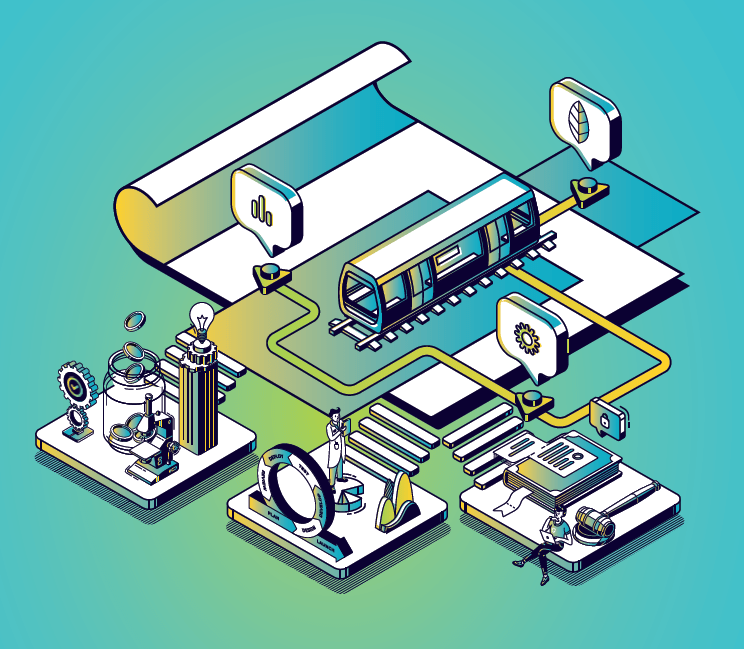The European rail supply industry on international competition and bringing costs down
UNIFE, the association of the European Railway Supply Industry, has been advocating strongly at European level for years for the preservation of the competitiveness of our European industry in a rapidly changing economic and geopolitical world. Protecting our industry, our autonomy, security, and our jobs is of paramount importance, especially in light of unfair methods and practices employed by certain non-European competitors, in particular state-owned. The fact that certain European railway companies or transport authorities are using, or intend to use, vehicles manufactured in and by China, demonstrates the urgent need for political action and corrective measures.
There is very lively competition among European rail vehicle manufacturers. This is reflected in our membership numbers and the diversity of the UNIFE members. We can also say with a clear conscience that the market outside our association is even larger, both in the European and international segments. Competition is healthy and we fully support it, as it drives innovation. But competition also has to be fair. European businesses adhere to strict safety, social, and environmental regulations. They create sustainable technology, train apprentices, carry out research, and pay fair wages. This should be the case for all economic operators, especially in a sector such as rail which provides public services to citizens.
Looking ahead, public procurement and the regulation of foreign subsidies in the EU, also known as the Foreign Subsidies Regulation (FSR), are key areas of our focus.
Public procurement
The rail supply industry emphasises the need for a more efficient, predictable legal framework with a single directive that integrates existing procurement law and clarifies deadlines, particularly for the cancellation of tenders. We advocate for ambitious and transparent evaluation standards for tenders (the Most Economically Advantageous Tender - MEAT - criteria) that prioritise non-price criteria unless based on life-cycle costs and support a European preference in strategic sectors such as rail with a focus on European value creation.
To guarantee our security in Europe today and in the future, we must carefully examine bids from third countries and exclude suppliers which do not have secured access to the European market and may pose a threat to our European security (such as in the security-critical area of signalling, including ERTMS® - the European Rail Traffic Management System). Recent incidents in public transport have already shown that European value creation and our security have unfortunately not been guiding principles until now. Particularly in a context of rail military mobility, we cannot accept suppliers from countries, that are not reliable and that do not share our European values, to deliver critical technologies.
Foreign Subsidies Regulation (FSR)
The European rail supply industry welcomes the support from the European Commission, in particular the Directorate-General GROW, while at the same time calling for closer cooperation in view of the changing challenges in the market, in particular the increasing presence of foreign state-owned companies such as China’s CRRC's, its recent contracts in Portugal and Austria and potential future orders. The 2023 OECD report confirms our concerns about fair competition and market distortions.
We advocate for systematic monitoring of problematic actors and emphasise the industry's willingness to contribute to combating distortions caused by foreign subsidies. We support the upcoming revision of the Foreign Subsidies Regulation (FSR) and call on the European Commission to simplify procedures, close loopholes such as private procurement and leasing, and lower the public procurement notification threshold to better capture urban transport projects and thus promote a fair and competitive European rail market.
The commitment of the rail supply industry
Despite the challenges, we take pride in being a top-performing rail supply industry that can compete internationally with high-quality products. But we do not rest on our laurels. Together with our customers and policymakers, we are working to obtain reliable forecasts for future orders, ensuring train availability and allowing for potential waiting times to be reduced. Under the current impetus from the Danish Presidency of the Council of the European Union, we are jointly addressing rising costs and are committed to reducing them with all our partners. Remaining and hampering national rules and individual equipment requests by operators must therefore be scaled back, as these drive up costs. Our aim is to offer harmonised and interoperable trains that are to be manufactured in larger quantities. On the other side, this inevitably necessitates the gradual roll-out of a fully interoperable infrastructure. All individual modifications take longer and cost more. Economies of scale, with large volumes leading to lower prices, are our goal. This will be of benefit for both our customers and their customers, the passengers and freight customers in the end.
Quote attributable to UNIFE Director General Enno Wiebe
“The European rail supply industry emphasises the importance of maintaining competitiveness through fair practices, supportive regulation, and strategic procurement policies, especially in response to distortive foreign subsidies from state-owned non-European competitors. We advocate for a streamlined legal framework, transparent tender evaluation with life-cycle costs at its core, and a European preference that prioritises security and European value creation. Additionally, we support enhanced monitoring of foreign subsidies under the FSR to combat market distortions and promote fair competition. Our industry is committed to reducing costs through harmonisation, interoperability, and economies of scale, aiming to deliver high-quality, sustainable products that benefit both European and international markets while safeguarding European security and jobs.”
